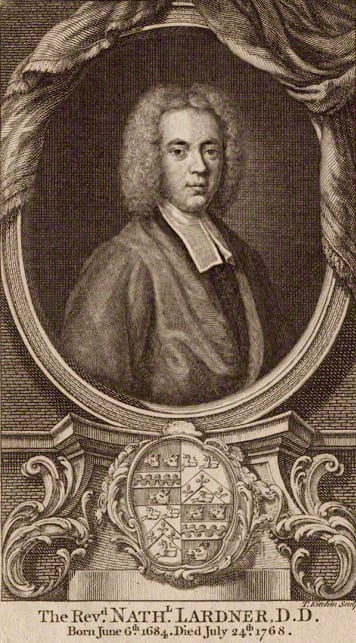With love and compassion, David Nelson penned The Cause and Cure of Infidelity. Nelson chronicles his own abandonment of disbelief, and from this personal vantage point leverages the universal human experience to afford the reader a glimpse into the origin and release of human doubt. Having studied the works of prominent infidels, particularly Voltaire, Volney, and Paine, in the work Nelson talks about sitting in the tavern with his friends and marveling at the combination of their ignorance and their assurance that Christianity was nonsense.
In his own words, from pp. 265-66:
“I listened, and the objections were all of the same class of those I had been reading, or weaker. It is strange that I should have remained an unbeliever; but as yet, I was only sufficiently shaken to cause me to read, inquire, and listen. I observed that those who hissed at the Bible were very impatient, if any one on the opposite side crossed them in argument. Even when talking with each other, their eyes flashed, and the countenance assumed an expression singularly vindictive. Others, again, chose irony for their weapon, and laughed aloud where others were not always able to discover any thing indubitably jocular. But that which gave me most pain, was that which I met so frequently, and which occurred almost hourly, from day to day. I saw those who assumed the lordly look, as soon as the subject was mentioned. They put on the consequential air of high authority, and with the tone of emphatic decision they pronounced others more than idiots, while at the time it was evident that they did not know Alexander the Great from Alexander the coppersmith. It was true of the most positive and the most over bearing in this controversy, that they were unacquainted with all ancient history, and would not know Peter the apostle from Peter the hermit, had you seriously tested the matter by particular examination. I was not surprised that men should be uninformed. That this was so with most of our race was no new discovery. Being ignorant myself to my own consciousness, I was not disposed to judge harshly of a man merely because he did not possess knowledge. I must have included myself in the same condemnation, had I spoken severely of the uninformed; but that those who had never read a hundred volumes of any thing, should so confidently and so repeatedly sneer at the learned, and the greyheaded, and the meek, who had been toiling in a fifty years’ research, began to make me suspect that men hated Christianity with a spontaneous and a special dislike. I did not hear the ploughman deciding, with oaths, sarcasm, and vehemence, in matters of navigation, wherein he was totally ignorant. I did not hear the apprentice-boy pronouncing all who did not hold his theory of astronomy deluded or hypocritical.
I doubted whether in any thing, religion excepted, men would so generally decide so quickly and so haughtily, while they were uninformed.”
David Nelson, The Cause and Cure of Infidelity: Including a Notice of the Author’s Unbelief and the Means of his Rescue (New York: American Tract Society, 1841)



